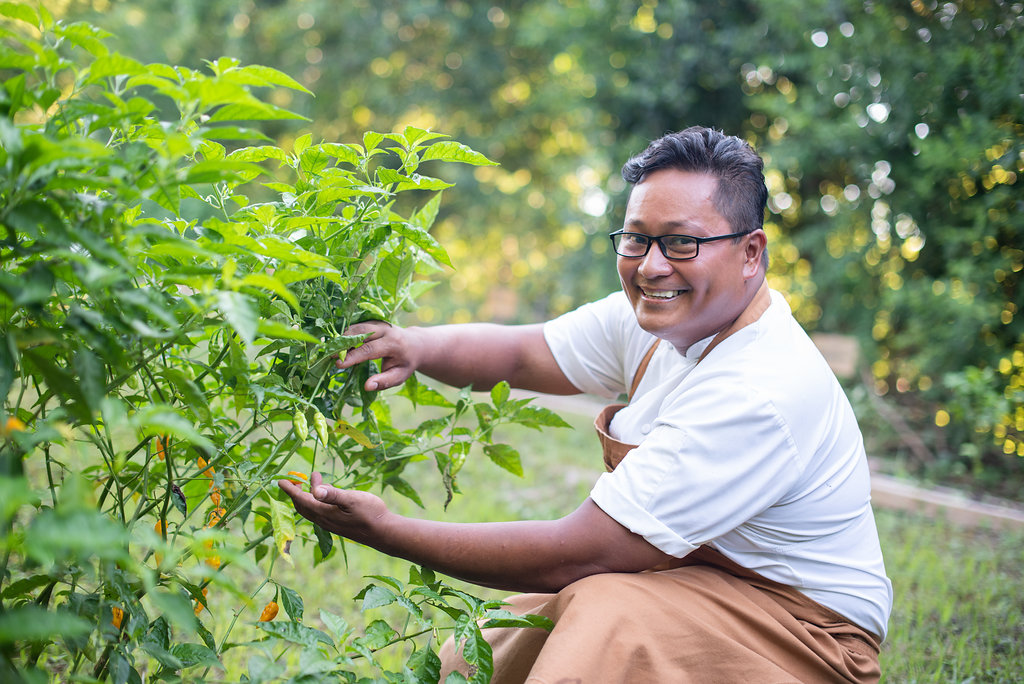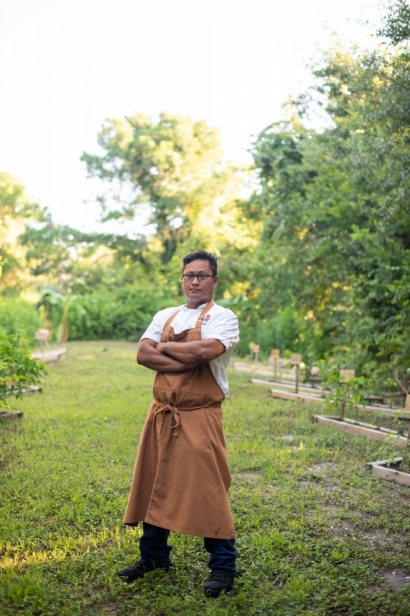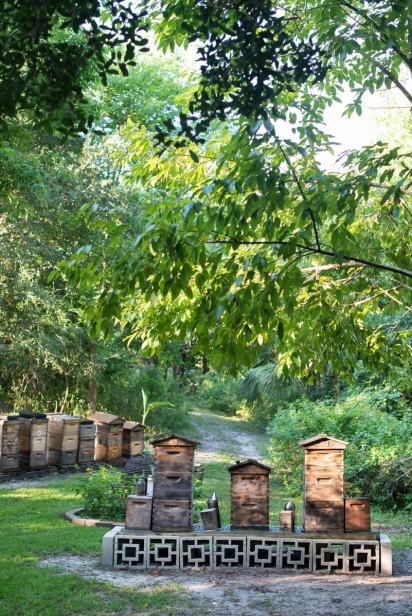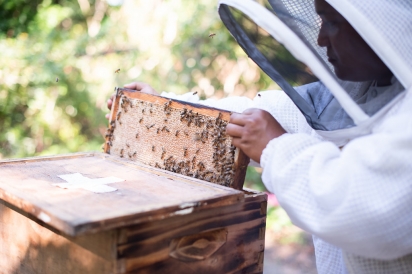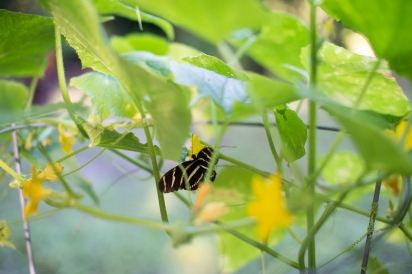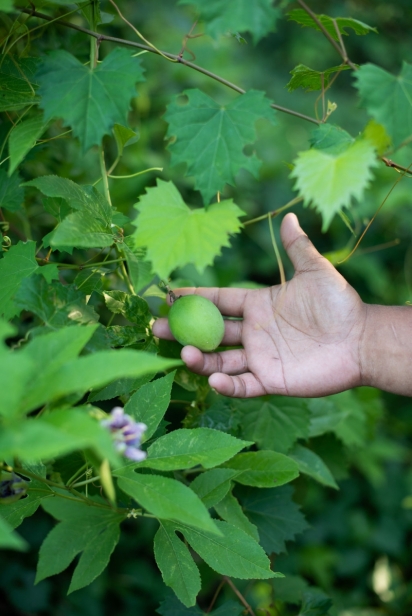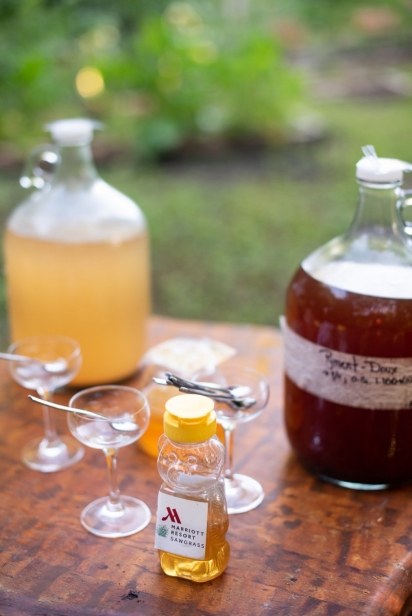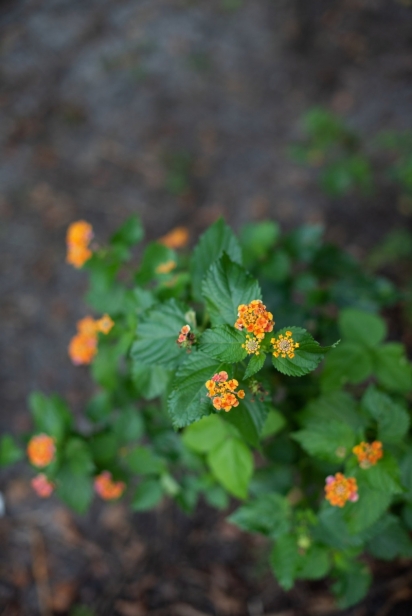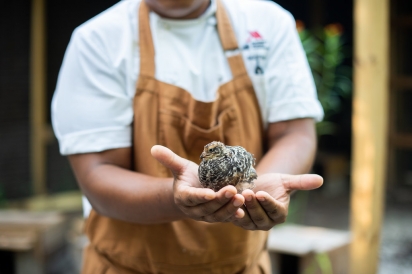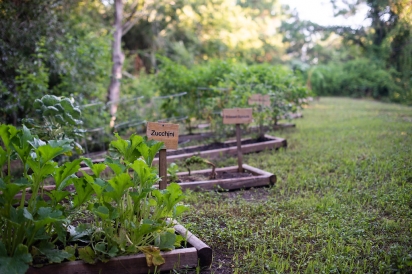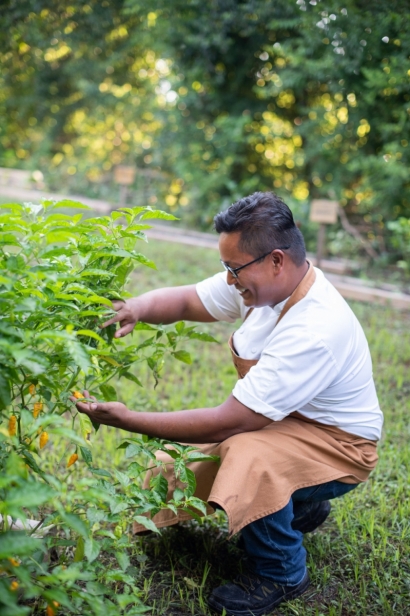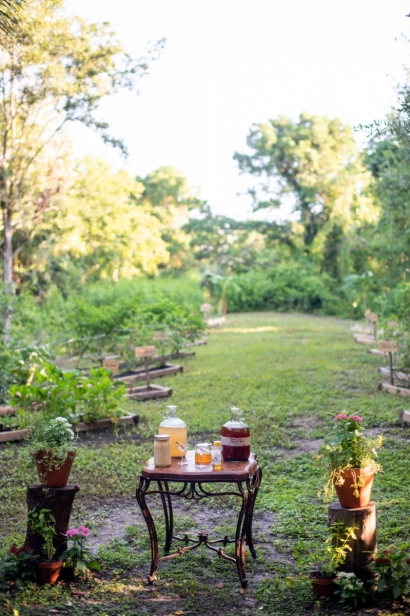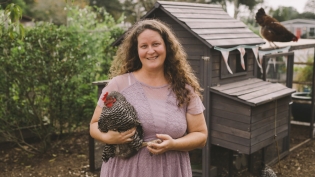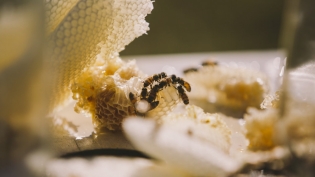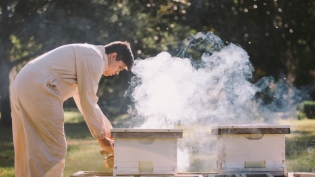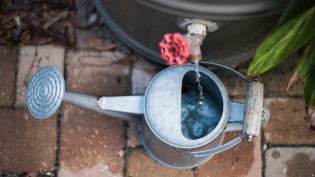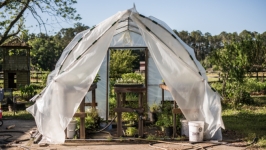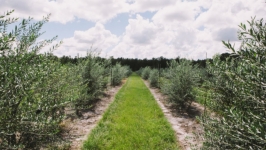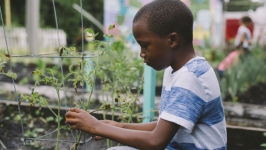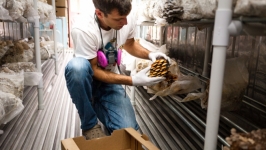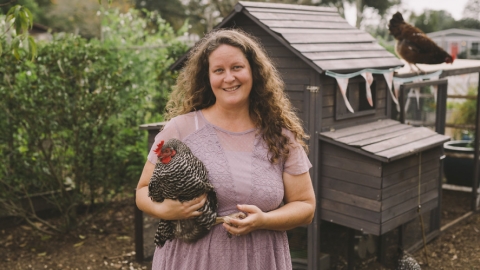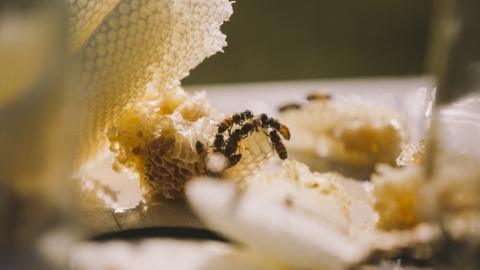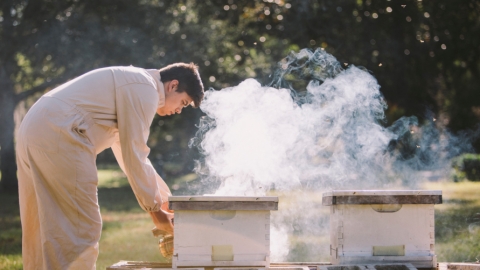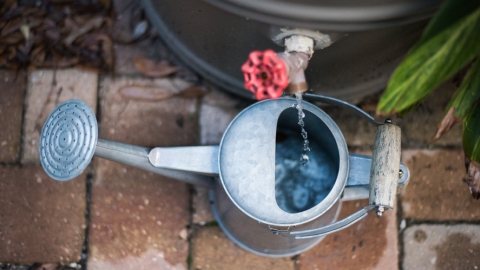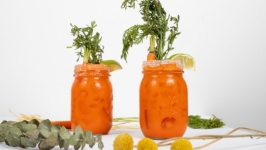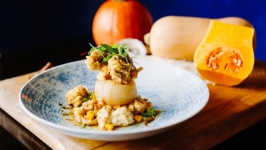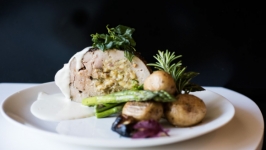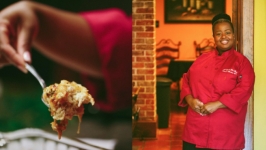Cultivating a Micro Farm at Sawgrass Marriott Resort
The path through the cluster of trees that leads to Bee Hill Micro Farm could easily be mistaken for an incidental wild animal clearing. The golf cart barely clears the entrance, then ambles up a rocky incline before sputtering to a stop in front of the property’s gate, which has been constructed from tree branches. This unusual entrance is apropos, given Chef Matthew Sanchez’s unconventional road to becoming the Marriott corporation’s first and only certified beekeeper.
The gates heave open to a clearing that could comfortably fit an in-ground swimming pool, or, perhaps, more vehicle parking. “I’ve been working on this over the last couple of years, not yet wanting to draw too much attention to it until the full scope of its potential could be demonstrated,” Sanchez says. “It’s kind of like that song by Joni Mitchell about paving paradise to put up a parking lot.” He didn’t want to see this plot of hotel property, located in Ponte Vedra Beach between the Sawgrass Marriott Golf Resort & Spa and the resort’s villas, befall a similar fate.
Here, pockets of projects at various stages of completion occupy the corporate hotel’s micro farm. A glass jug of muscadine grape and datil pepper mead sits atop an antique end table, which serves as the entry point into the garden portion of the micro farm. Flanked by native plants on either side, rows of raised beds teem with datil peppers, okra, tomatoes, Brussels sprouts, corn and greens — some grown from seed and others sourced from Jacksonville feed and farm supply distributor, The Green Spot. Beyond the tree line, there is a fallow piece of land destined to become a salt extraction project.
Sixteen colonies of bees occupy the opposite end of the property, which is the hub of the landscape. This micro farm, Sanchez says, is the result of both the support of Sawgrass Marriott’s culinary staff and hotel management as well as a failed tomato-growing project.
“I remember we were doing menu planning a couple years ago. The temptation is to consult the catalog and see what we need to order,” Sanchez says. “One day, executive chef Joe (Natoli) and I just stopped and said: Can we get off the wheel? Are there things we can do ourselves?”
He pauses and kneels before a colony of buzzing honeybees. “This is our wheelhouse. Beekeeping is the gateway drug,” he says. “I feel so grateful that the staff here has basically given me carte blanche and put faith into my crazy ideas.”
The vision is to cultivate a self-sustaining agricultural space that can be replicated throughout other Marriott hotel properties, although for now, Sanchez is the only beekeeper on Marriott’s payroll, according to a company spokeswoman. But Sanchez is ready to propagate his vision, having already prepared a syllabus with chapters that cover such topics as beekeeping, safety and inspection regulations and hygiene. Natoli allocates a certain amount of the food and beverage spend toward supporting the micro farm’s endeavors, though much of it was developed through resourceful practices. Items destined for the trash (think wood pallets and food waste) are up-cycled for building materials and compost. Queen bees were grafted to form new colonies. “People from different departments of the hotel are coming out and adding their special touch,” Natoli said. “A gentleman from the laundry department wood-worked all our signs, and an engineer tapped the sprinkler system to bring us water to the hill.”
Sure, the likelihood of an institutional buyer such as Sawgrass Marriott growing all its own food on premise is unlikely, at least for the foreseeable future. But the micro farm’s supporters view the project as a portal into a different philosophy of food sourcing and a corporation’s obligation to the environment. “The big thing is contributing to the health of the local ecosystem and in turn, learning how to farm and grow more ourselves,” Sanchez says. “Our focus has to start right here, with the earth.”
For Sanchez, who owns his own micro farm in a rural area of Jacksonville, the seeds were planted a few years ago, when successive attempts to grow good tomatoes that didn’t require pesticide applications kept falling short. “I grew thousands of varieties of tomatoes, before I realized it comes down to bees and pollination. When you have beneficial insects, flowers are pollinated. The fruit forms more perfect, and you don’t lose them to pests. I will never waste a tomato again.”
Sanchez, a state-licensed beekeeper who also is in the University of Florida’s Master Beekeeper program, studies the bees’ foraging travels with binoculars, and can tell which nectar sources they’ve been to by the corbiculae, or pollen baskets, on their legs.
“It’s called flower fidelity — they go to the flowers with the most food,” he says. In spring, holly, black cherry and tallow represent the dominant flavor notes. “The 32082 zip code spring honey is sweet, light in color, delicate and low in moisture content,” Sanchez says, in reference to the zip code for Ponte Vedra Beach. In the summer, honey bees look to palm trees as their main source of nectar, resulting in honey that is darker and higher in moisture content, while the fall batch will have elements of golden rain tree and goldenrod.
Sanchez and Natoli have high hopes for the micro farm. Sanchez has built a 900-square-foot enclosure that can accommodate about 100 quail, potentially producing 100 fertile quail eggs a day. Chickens occupy another nearby enclosure, their contributions about to become more significant once Sanchez’s mealworm composting project takes hold. He’s currently tinkering with binchō-tan charcoal, zeolite and a pizza oven to, basically, evaporate seawater to make sea salt, with plans to export his experiment from the kitchen to the micro farm.
“We should be able to provide salt on every table in every restaurant and in our spa. We have water, and we have sun,” Sanchez says.
In the immediate future, plans for tours and alfresco dinners are in the works.
As Sanchez rattles off ideas for kitchen plastics repurposing, floating gardens in the nearby pond, hops-growing, mead-making and goat-husbandry (many of these endeavors of which he has prior experience given his background in science, cooking and farming), one gets the sense that a small-scale vision could indeed become part of a broader institutional food-sourcing philosophy, if their customers — that is us — support it.
"The ultimate form of sustainability is to be self-sustaining," says Sanchez. "Now that the door is open, it’s open."
Chef Matt Sanchez can be found cooking and micro farming at Sawgrass Marriott Golf Resort & Spa.


